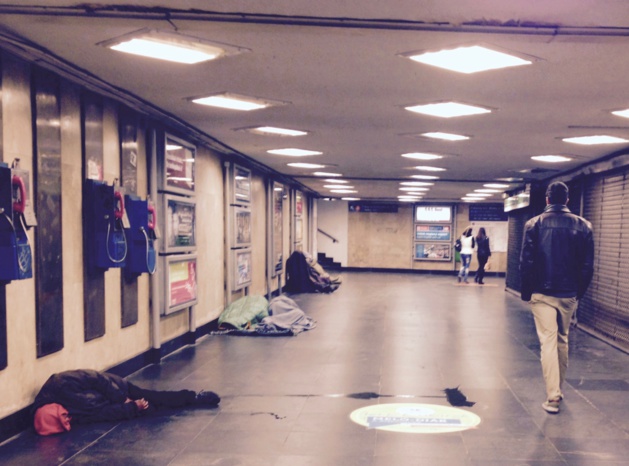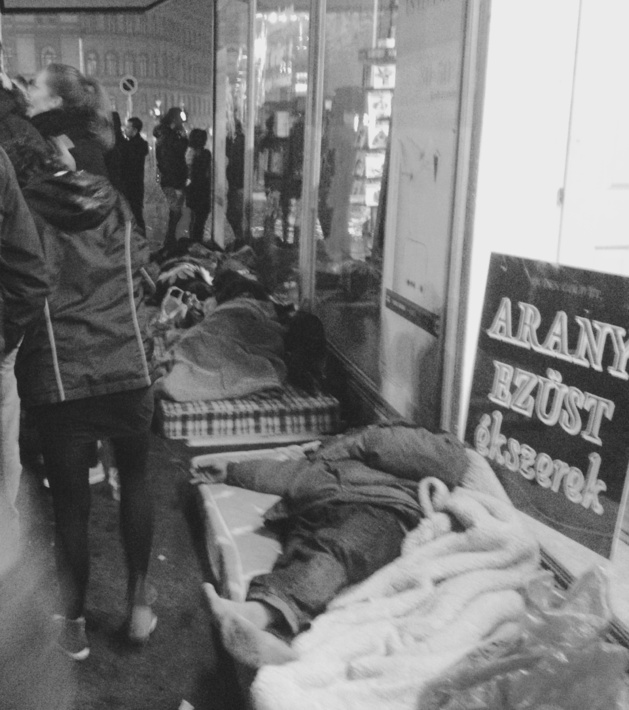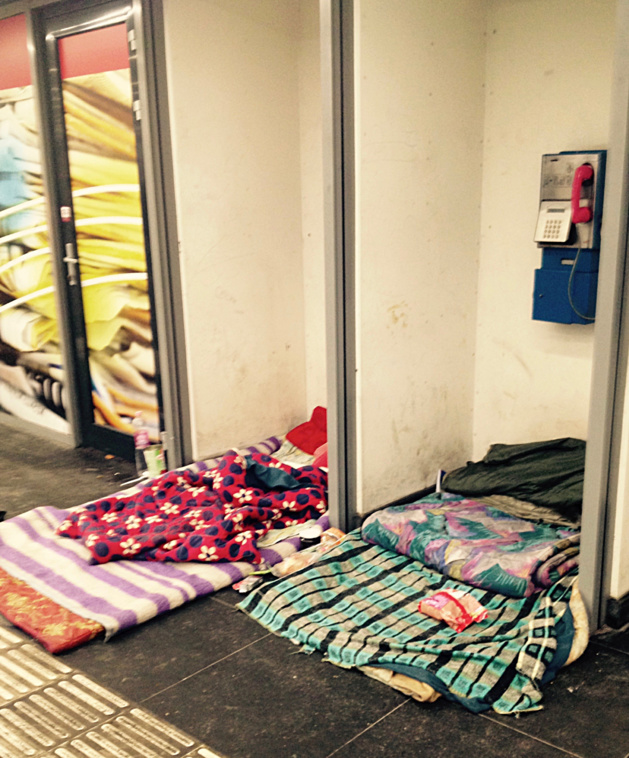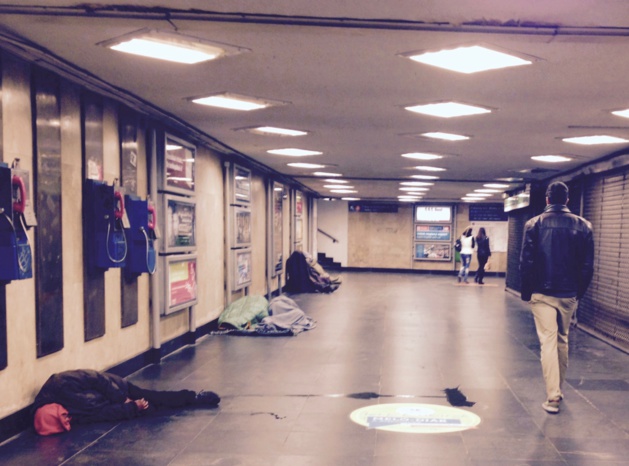
Credit: François-Xavier Legrand
Hungary joined the European Union on the 1st May 2004. Nevertheless, it is not part of the Eurozone. The national currency of the country is the forint and the conversion rate comes close to 310 forints to the euro. The transition to the European currency is not on the agenda. Its adoption, already postponed, might now be planned for the period 2020.
Why refuse? A price inflation due to a change of this kind is to be feared. In many neighbouring countries, the euro changeover caused an increase in prices, partly with the aim of simplifying. What would happen then if the slice of pizza that anyone can find on every street corner for 200 forints (€0, 64*) became €1 or €2? What would happen to the small bread rolls for 14 forints (€0.04 *)? What would then be the price of a pint of beer, which is currently worth around 350 forints (€1.12*)?
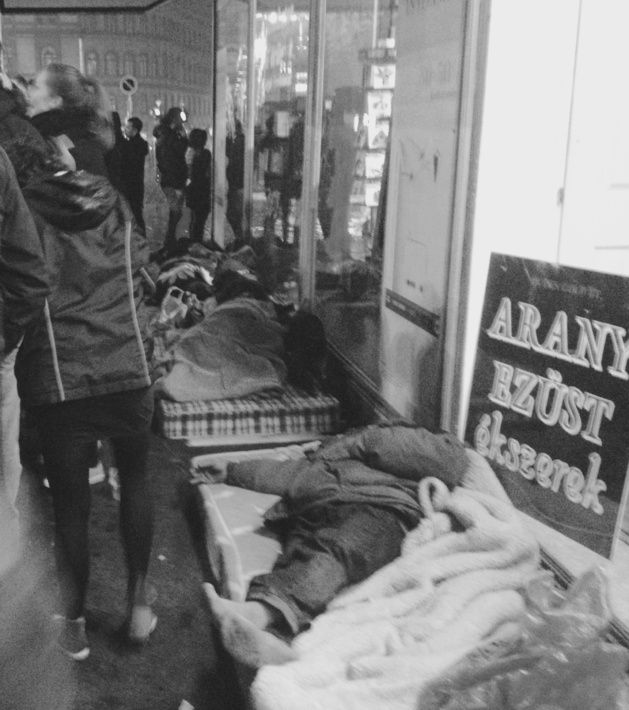
The fear that the price of one’s shopping bag might rise is legitimate. One would have to be naive to think that a carton of milk would still be less than one euro, or that a classic burger in a pub would still be served for €4.50*. The fact remains that no-one complains about paying with banknotes of 1000, 2000, 5000, 10000 or 20000 forints. This old currency still remains nowadays in every Hungarian wallet, and this will be the case for a long time.
A Worrying Price Inflation
Apart from the fact that the transition to the euro is not part of the agenda, a worrying inflation of the prices is being felt. ‘Prices continue to rise. Anyone can notice it, price tags almost change every day’, objects Brigitta, a forty year old Budapesti. Gábor, a Budapesti working in the real estate business, has observed a price spike since 2013. “It has become more profitable to rent a flat on Airbnb. Consequently, the number of flats rented by the year has been tumbling while rents rise dramatically in order to overcome this shortfall.”
It appears that with this economy, a monthly basic salary of 350€ is not enough for someone to be self-sufficient and to pay for rent and food in order to survive. The prices are getting increasingly close to those of Western European countries. Moreover, the largest shopping centres offer similar prices. To the question “how is it possible to make a living with a salary which is 3 or 4 times lower than in Western countries but with similar prices?”. The answer is obvious but remains hardly acceptable: “this is not about living, but rather surviving.” This answer now applies to anybody. It is common to hear that a doctor has to find a balance between several different doctor’s surgeries and hospitals in order to earn €1000 per month: an amount of money that can be called a minimum for survival if one has to feed a family.
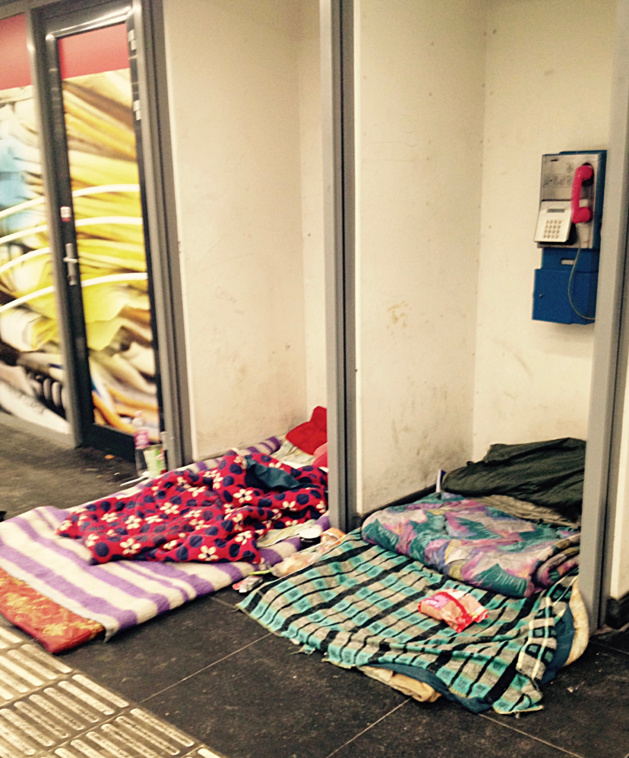
Is Hungary really so poor? Réka, a professor of law at the University of Budapest, considers the situation in context: “the worst situation can be witnessed in the Eastern part of the country. It is frequent to meet country dwellers who do not wear socks or shoes. At Budapest, financial professions, as well as law and business professions allow an adequate living standard. They hide poverty, but poverty is real.” Réka also finds the lack of funding in the public sector unfortunate. “The state’s finances do not enable us to finance the public sector properly. Whenever someone obtains an internationally recognised diploma, it is normal to see this person migrating to another country, like doctors for instance.” The law professor likes to use the traditional phrase saying that London is the country’s second most important city because so many Hungarians are living there.
Underground Entrances, Front Steps, Pavements, Porches: The Nests of Poverty
Men or women, young people, adults or the elderly, there is no distinction between them. The homeless of Budapest are visibly present in the streets. Regardless of the district or of the stretch of pavement, a simple one-hour walk around the city is enough to meet a large number of them. It is common to see some of them rummaging through rubbish bins or to queue up in line against the mattresses used by homeless people in order to go into a nightclub. Consequently, when winter is coming in this country where the temperature can easily reach -5 or even -10°C, underground entrances become a shelter for this neglected part of the population. It is warmer and it does not rain inside, but there are always people passing through and the light is blinding. Besides, the noise is deafening. This is why many others spend their night on the front steps of a house. Some of them try to catch the heat from an air vent. In other words, any kind of shelter is worth taking. Even the compartment of a phone booth enables the smallest amount of privacy. In light of this social and economic misery, a student from Budapest affirms that “the common goal of every individual is to survive”.
*Conversion rate from the 1st of February 2016
*Conversion rate from the 1st of February 2016














